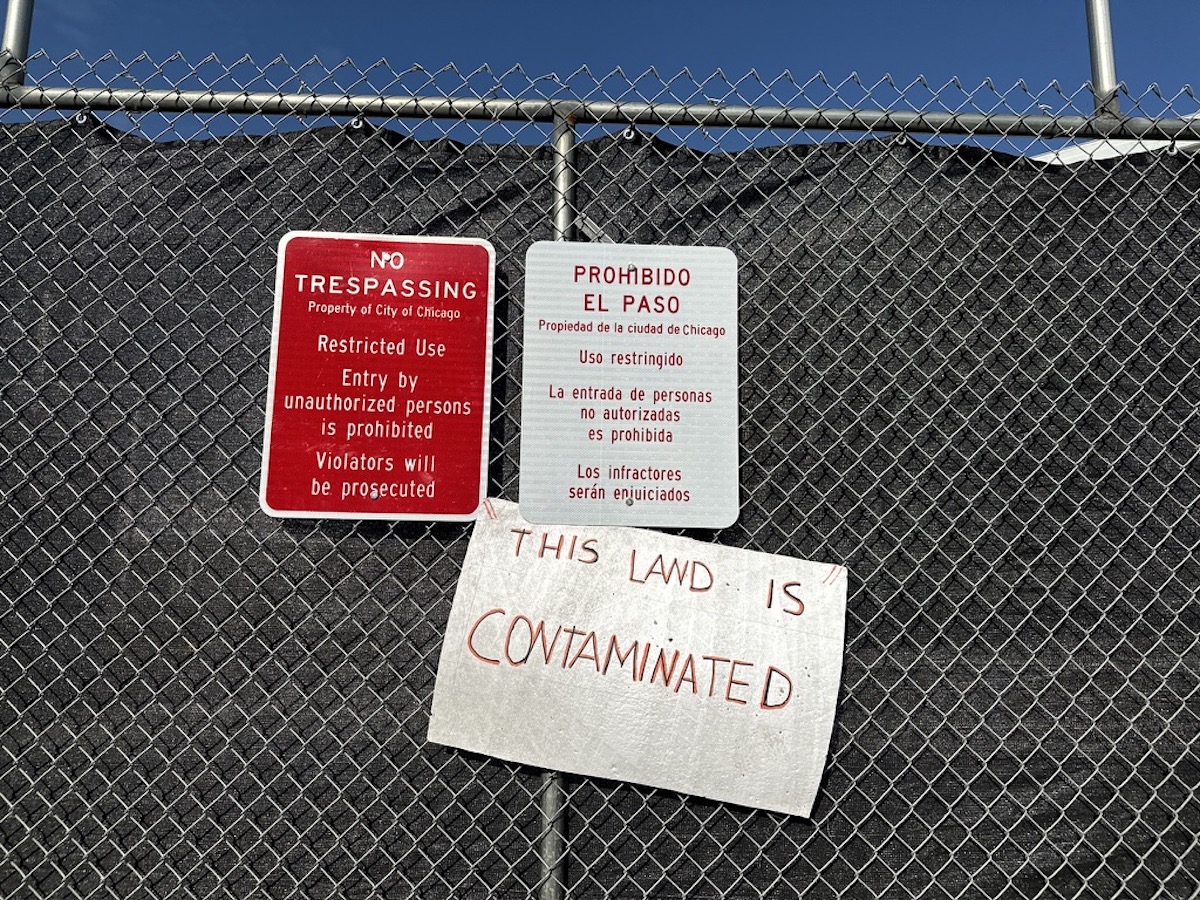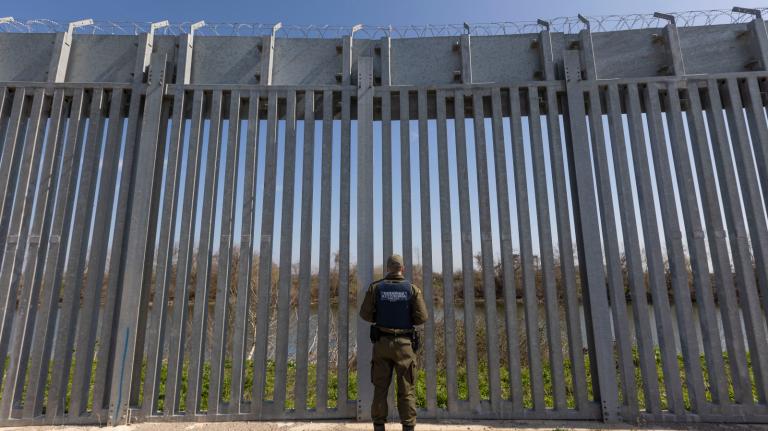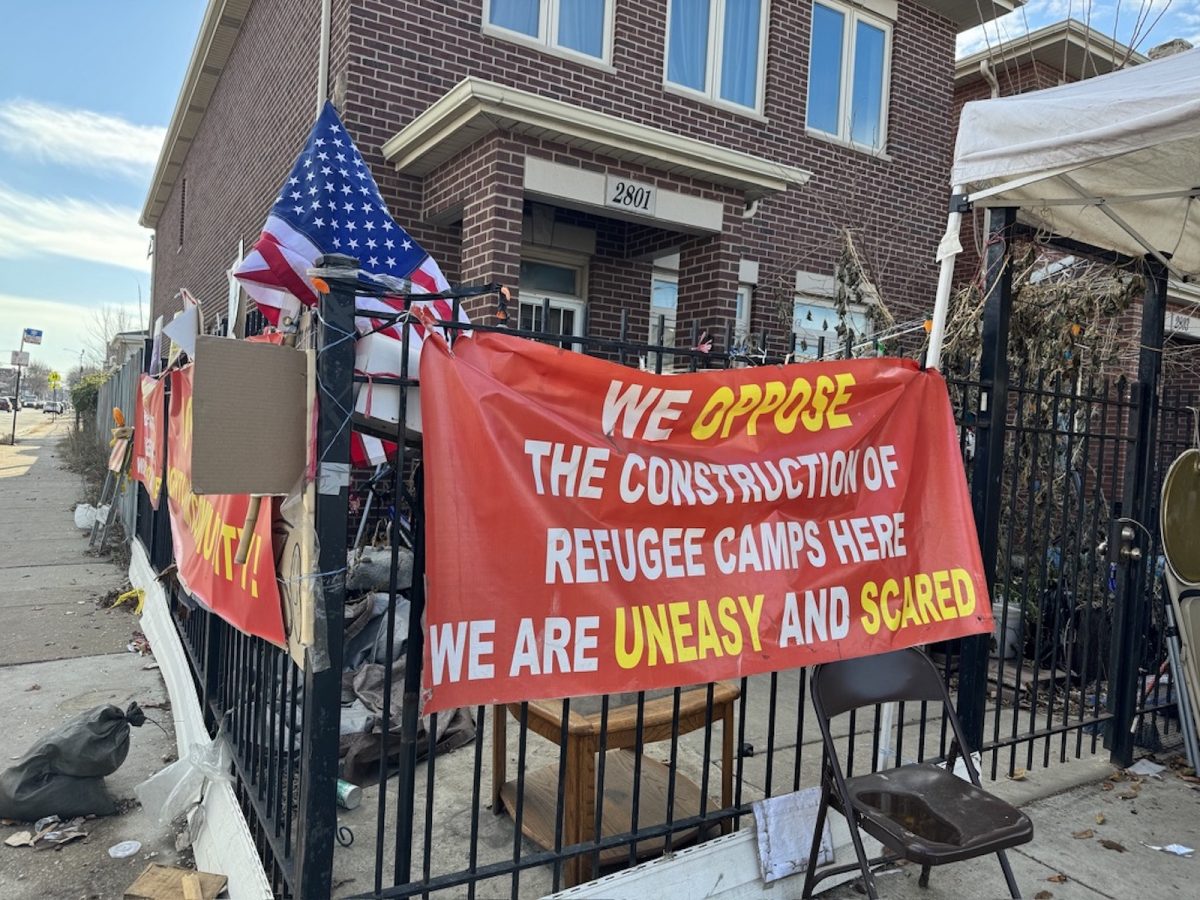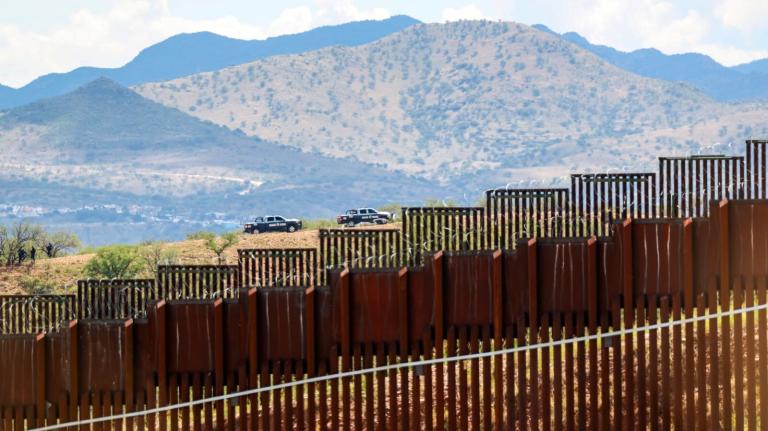This coverage is made possible through a partnership between Grist and WBEZ, the NPR station in Chicago.
A controversial tent city to house migrants in Chicago will not go forward after Illinois Governor J.B. Pritzker cited environmental concerns on Tuesday, pulling the state’s support for Mayor Brandon Johnson’s project to provide winter shelter for asylum seekers.
“We will not proceed with housing families on a site where serious environmental concerns are still present,” Pritzker said in a statement.
The Illinois Environmental Protection Agency came to the conclusion that the camp wasn’t safe after reviewing a city-issued report detailing the contaminants found at the former industrial site in the city’s Southwests Side and the efforts to remove them.
The decision comes barely a day after the governor’s office called for a pause in the construction in the Brighton Park neighborhood, where both neighbors and environmental advocates opposed the proposal with signs that read “This land is contaminated.”
Arsenic, lead, and mercury all turned up in soil sampling across the site, as well as toxic compounds including pesticides and PCBs, also known as polychlorinated biphenyls, according to the nearly 800-page city report. While city officials say the majority of the contaminants have been cleared from the soil, Illinois EPA officials said not enough testing had been done and that state standards for remediation had not been met.
The tent city was being constructed by GardaWorld Federal Services, part of the multinational private security firm that inked a nearly $30 million deal with the city for its services in September. GardaWorld has faced scrutiny for its role in bussing migrants out of Florida and allegations of mistreating migrant children. In the past week, the company had raised the metal skeleton of several of the massive tent structures, spanning a city block. The full installation was scheduled to open later this month.

Since August 2022, more than 22,000 asylum seekers have arrived in Chicago from countries such as Colombia, Nicaragua, and Venezuela. To date, nearly 13,000 are living in shelters across the city or are housed in police stations and O’Hare International Airport.
“It’s not a surprise,” said Anthony Moser, a founding member of Neighbors for Environmental Justice, a watchdog environmental organization based on the South Side of Chicago. “That when you pick an industrial lot in the industrial corridor, and it turns out to have contamination.”
The lot in Brighton Park was home to a freight terminal, a zinc smelter, and an underground diesel storage tank. Environmental advocates worry about potential health concerns for migrants who will be housed at the former industrial site. From the beginning, advocates like Moser said the city left the community in the dark.
“They did not announce when they started considering this site, they did not announce when they signed a contract for this site,” said Moser. “They did not announce when they found something as a result of environment testing, they did not announce that they were going to begin construction.”
In a press conference last week, Johnson had pointed to approaching winter temperatures when defending his decision to raise the Brighton Park base camp before releasing the environmental analysis to the public.
The state was footing the $65 million bill to build the tent encampment in Brighton Park and retrofit a nearby empty drugstore to shelter migrants.
Initially, the plan was to transfer 500 migrants to the newly built base camp. According to the contract, the site capacity is between 250 to 1,400, but the city is aiming to shelter up to 2,000 migrants there.
This story has been updated to include Illinois Governor J.B. Pritzker’s decision to stop the construction of the tent city.




